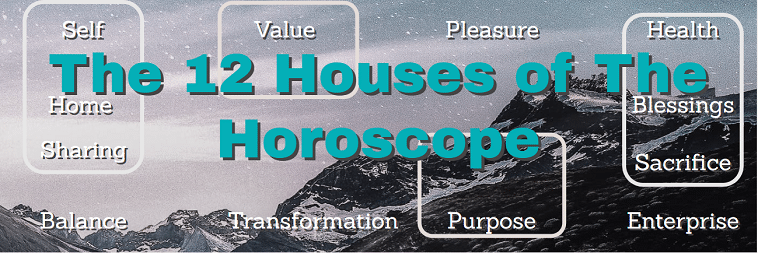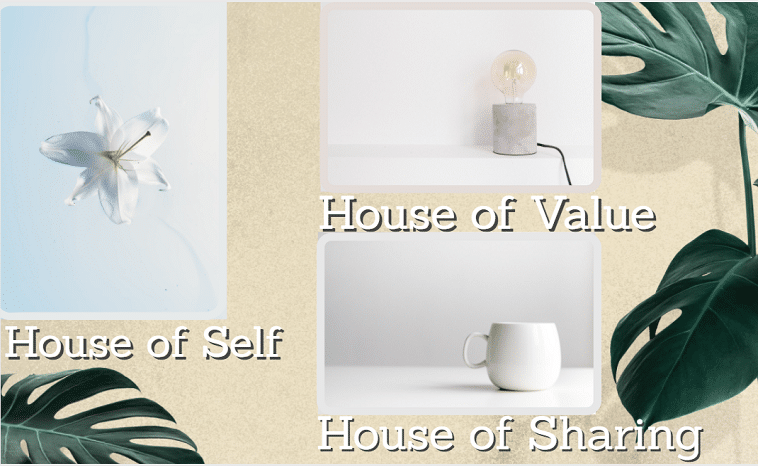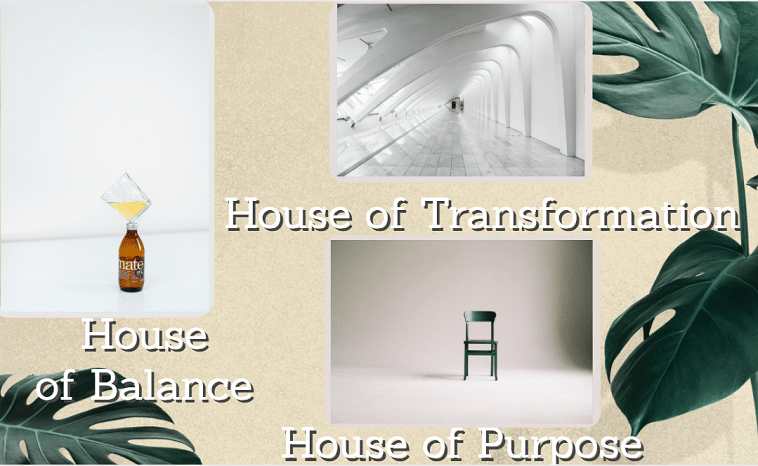Interpreting Astrology: The 12 Houses of The Horoscope

The horoscope of human birth is also called the Natal chart. It consists of three components: signs, planets, and houses. In this blog, we will explore how each of the 12 houses affects human life and existence on Earth.
The Twelve Houses
The rising sing is also the point where the first of the 12 zodiac houses begins. They represent different areas of life and may contain planets in the natal chart, but they do not have to. Signs and planets move through all twelve houses during the day, and planets move through signs over the months or years.
The houses in the horoscope show us in which areas of life something is happening. When we have a lot of planets in a house, that area is especially active either through events related to what that house signifies, or through the experiences we gain through that area. If a house is empty, it does not mean that it loses its importance, because the position of the ruler of that house plays a significant role in how much it is emphasized.
The Houses of Self, Value and Sharing
The first house in the natal chart is considered the most important field because it reveals our basic characteristics and the predispositions that we have in life. To the greatest extent, it refers to the very beginning of life – birth, how we are physically built and what kind of temperament we have. As the top of the first house – the ascendant symbolizes the head and controls its organs, nervous system and generally represents the mental traits of one person.
The second house oversees financial issues, material security, prosperity, development, profit. This house also refers to property issues, inheritance, and acquisition of wealth in general. In addition, what is also very interesting is that the second house is also in charge of showing a certain type of talent in people, which most often refers to the talent of a good voice, regardless of whether that person is a good singer, presenter, speaker, or lecturer.

The third house in the natal chart is the house of relatives, the house of sisters and brothers. It also refers to relations within the family and beyond, relations with the neighborhood, colleagues, associates. To a large extent, this house determines the intellect of a person and their abilities: the capacity to learn, practicality and action in business. It tells us more about how a person will cope with schooling and work and what experience they will gain.
The Houses of Home, Pleasure and Health
The fourth house refers to the home and everything related to it: family, land, house, emotional security, one’s roots. Astrologers are divided over whether this house is connected to the mother or the father. What is clear is that the upbringing of a person relates to this house. Since this is also the lowest point on the chart, it also represents things below the surface of the Earth, so it governs the conditions at the end of life. The fourth house also shows where you go when you die, but also where you came from. For those who believe in reincarnation, it shows what you have brought with you into this life as karmic baggage.
The fifth house refers to children, creativity and the search for pleasure and enjoyment, personal interests, love, romance, sports, hobbies, creative self-expression, but also speculation, risk-taking, drama and gambling.

The sixth house refers to everyday life, diligence, habits, obligations, diet, health and diseases, physical abilities for work. It includes personal hygiene and our way of reacting to everyday crises.
The Houses of Balance, Transformation and Purpose
The seventh house is sometimes called the house of marriage, although it encompasses all one-on-one relationships: marriage, business partnerships, contracts, cooperative relationships, but also divorce, separation, quarrels, open enemies, and lawsuits. It also includes the way we treat those closest to us.
The eighth house is the exact opposite of the second house. While the second refers to individual property, the eighth represents joint finances, money and property of the partner / spouse, inheritances, taxes, bankruptcies, losses, alimony. This house also regulates death, injuries and even clairvoyance. In a positive sense, this house also refers to regeneration, transformation, and healing.

The ninth house refers to philosophy, religion, law, teaching, higher education, ethics, morality, long journeys, spiritual instincts, dreams, visions, ideas, understanding and wisdom, books, publishing, ceremonies, and rituals. This is a house of great thoughts and great ideas.
The Houses of Enterprise, Blessings and Sacrifice
The tenth house is a house of status, honor, power, reputation, and one’s professional career. In our society, that includes financial success, but only because it refers to prestige and social status. This house includes personal achievements, ambition, social responsibility, authority. As with the fourth house, astrologers are divided over whether the tenth house is the mother’s or father’s. Those who say that the fourth house is the mother, say that the tenth house is the father’s and vice versa.
The eleventh house is a house of community, association, and friends. It refers to memberships, hopes, goals, ambitions, desires, social groups, humanitarian interests, as well as self-knowledge, freedom, laws, and regulations.

The twelfth house refers to the subconscious, hidden things, mental illness, karmic debts and habits, self-deception, limitations, frustrations and finally our self-destruction. On a physical, material level, it includes things that lead us away from everyday life: institutions (such as hospitals, prisons, government offices), secrets, secret connections, hidden enemies, and sacrifices for others. It also applies to grief, trouble, sorrow, burial, isolation, bribery, and endings.

